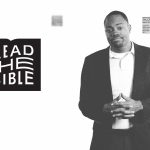On September 18, 1963, Martin Luther King, Jr. found himself in a position all too familiar to us today. Just three days prior, four young girls—14-year-olds Addie Mae Collins, Cynthia Wesley, Carole Robertson, and 11-year-old Denise McNair—were killed when a white supremacist hurled a makeshift bomb near the east side of Birmingham’s Sixteenth Street Baptist Church during Sunday school. As he stood above the tiny caskets of three of the victims, King was challenged to make sense out of a brazen act of racially motivated violence. With clarity and courage, he offered the bereaved family and the church practical reasons for hope and practical ways to respond.
In the wake of the recent Charleston massacre, the American church once again grieves a wanton act of racially motivated violence against black Christians at worship. Searching for answers, we are again forced to reckon with our own conscience about the pervasive sin of racism. More than 50 years later, King’s words and wisdom are as powerful and relevant as ever. Together, let’s see what his “Eulogy for the Martyred Children” has to say to us in the wake of Charleston.
Reason for Hope
Without minimizing the sufferings of the innocent, King offered practical hope by pointing to God’s matchless power and goodness in the face of suffering:
And so my friends, they did not die in vain. God still has a way of wringing good out of evil. And history has proven over and over again that unmerited suffering is redemptive. The innocent blood of these little girls may well serve as a redemptive force that will bring new light to this dark city.
Although King resisted offering comprehensive answers to the mystery of God’s purposes, he maintained confidence in God’s power to wring good out of evil. This hope was grounded in his view of the death and resurrection of Christ, which offers definitive proof that God can bring transforming benefits out of the worst moral atrocities. In the final analysis, evil must bow to the good purposes of his sovereign will. This was the hope Christ embodied in the face of unspeakable brutality and injustice. He “continued entrusting himself to him who judges justly” (1 Pet. 2:23).
King’s insistence that unearned suffering is redemptive reflects a nearly 250-year-old tradition in the black church going back to the earliest Negro spirituals. Beneath the sweltering sun of Southern cotton fields, slaves shouldered on with the hope that their sovereign God could “make a way out of no way”—that, because of Christ, God would somehow bring good from the evils inflicted on them. This hope has carried black Christians through the brutalities of chattel slavery, lynchings, Jim Crow, and segregation. And this hope continues to carry them through the various forms of oppression, violence, and dehumanization they face today. This doesn’t mean suffering itself is good; it means that because of gospel we can be confident God’s omnipotent goodness will have the final say over every form of suffering, no matter how severe.
Redemptive suffering is not mere sentimentalism, nor naïve optimism, but the real and lasting hope that only the good news of the resurrected Christ can bring.
Reason to Respond
King also insisted each of us should learn something through the sacrifice of the victims. Much like Emmanuel AME of Charleston, Sixteenth Street of Birmingham was especially targeted for its work in promoting civil rights for Southern blacks. King called the little girls who died “martyred heroines” in the cause for freedom and human dignity, and insisted that in their deaths they have something to say to each of us. Among other things, he noted, “They say to each of us, black and white alike, that we must substitute courage for caution. They say to us that we must be concerned not merely about who murdered them, but about the system, the way of life, the philosophy which produced the murderers.”
This is an especially powerful word today. There has been much discussion about Dylann Roof, but comparatively little about the system, way of life, and philosophy that shaped him. If the death of the Charleston Nine teaches us anything, it should reveal the wickedness of the philosophy that dehumanizes and caricatures blacks as criminal, violent, and expendable. It should remind us the sin of racism steals, kills, and destroys. This is the sinful philosophy that causes even well-meaning Christians to find ways to justify violence against unarmed blacks as deserved and to sympathize with ways of life that celebrate black oppression, and to support policies that unjustly and disproportionately target, isolate, impoverish, and lock blacks away. This is the sinful philosophy that causes too many Christians to secretly fear black men as dangerous, overly sexualized thugs, and black women as lazy, overly sexualized welfare queens—images that intoxicated Dylan Roof and still pervade our society.
Such ideas dehumanize persons made in the image of God and threaten to fill white brothers and sisters with the kind of pride that refuses to bow the knee to Christ and his royal command to love deeply, selflessly, and sacrificially. This is the sinful philosophy that so desensitizes some church leaders to black suffering that on Sunday mornings they don’t even mention or pray for the massacre of nine fellow Christians, a clear attack against the gospel and church of Jesus Christ.
Way to Respond
Finally, King offered Christians a practical way to respond to the kind of violence that reared its head in Charleston. We naturally respond to violence through either violent retaliation on the one hand or passivity on the other. About violence, King warned, “We must not become bitter, nor must we harbor the desire to retaliate with violence.” His words recall the example Jesus set as he faced his persecutors: “When he was reviled, he did not revile in return; when he suffered, he did not threaten” (1 Pet. 2:23). About passivity King explained we must not passively stand on the sidelines in the “mighty struggle for justice.” These words recall Christ’s active resistance to sin. He continually entrusted himself to God and actively laid down his life for our salvation, rather than passively having it taken from him (1 Pet. 2:23; cf. John 10:18). Through actively resisting sin in faith, our Savior set a loving example for us to imitate.
As we think about how to respond to the Charleston massacre, we must look to the cross of Christ. We must refuse the way of violence and the way of passivity. Instead, we must actively repent and work in faith against the sinful philosophy of racism in all its forms, both personal and institutional.
Charleston showed us clearly that time alone can’t heal sin. However, by the power of Jesus Christ and his gospel, the sin of racism can be healed in our lives and in our churches. May the Lord grant it for his glory.
Is there enough evidence for us to believe the Gospels?
 In an age of faith deconstruction and skepticism about the Bible’s authority, it’s common to hear claims that the Gospels are unreliable propaganda. And if the Gospels are shown to be historically unreliable, the whole foundation of Christianity begins to crumble.
In an age of faith deconstruction and skepticism about the Bible’s authority, it’s common to hear claims that the Gospels are unreliable propaganda. And if the Gospels are shown to be historically unreliable, the whole foundation of Christianity begins to crumble.



































